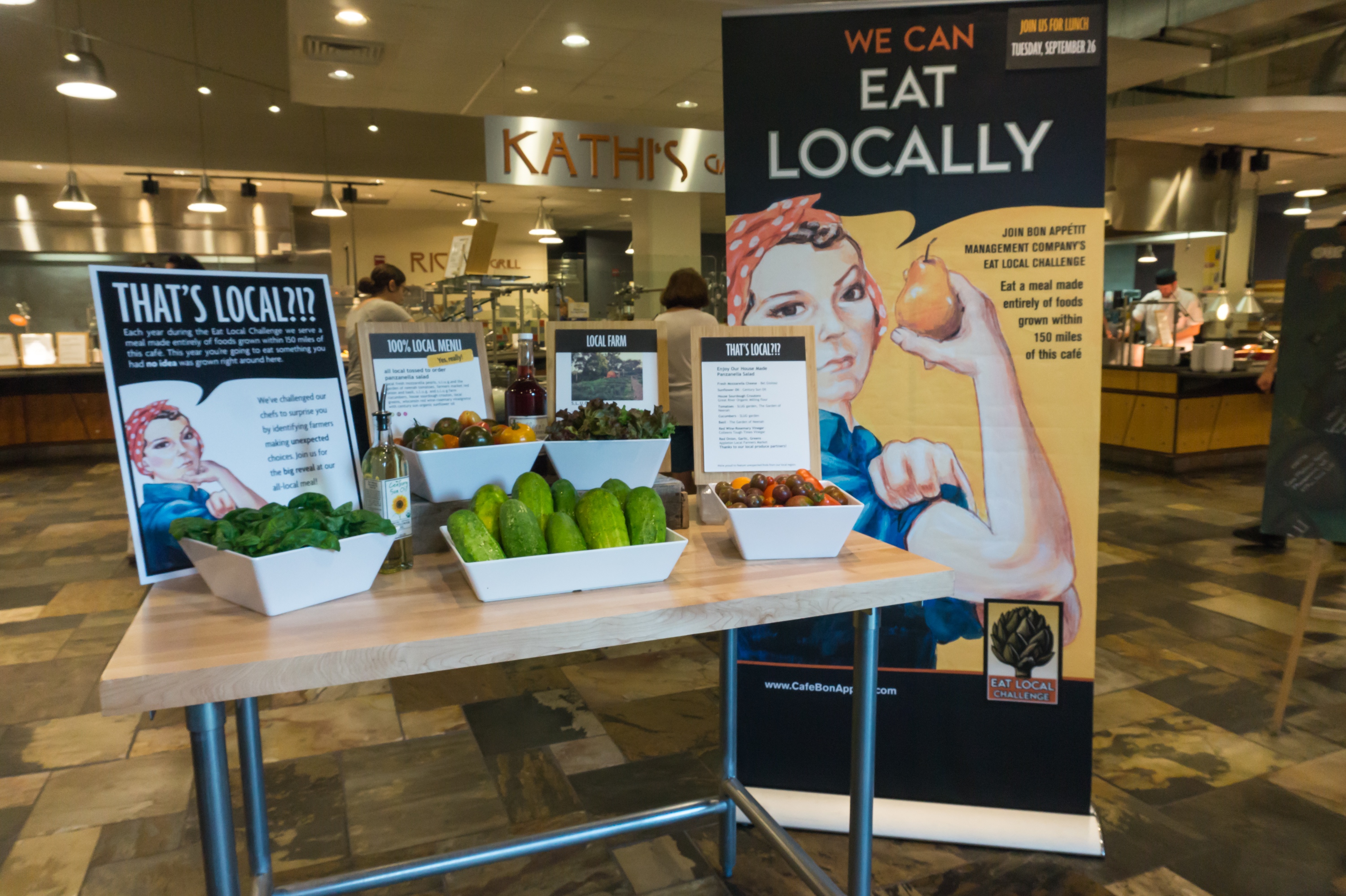Andrew Commons takes the initiative to provide a 100% locally sourced lunch featuring local meat, coffee and produce at their annual event.
Photo by David Baldwin
Lawrentians, like most people, love food. It shows in the vast number of people who show up at Andrew Commons every day, attend club meetings any time there is free food advertised or take advantage of the weekly Farmers’ Market down College Ave. Lawrentians also love sustainability. This is evident in the number of environmentally minded organizations on campus and even the Warch Campus Center itself, which boasts a U.S. Green Building Council Leadership in Energy and Environmental Design (LEED) Silver certification. However, what do Lawrentians love more than food and sustainability? Those two things combined. Food sustainability is a major part of the Lawrence campus, as was showcased in an event last Tuesday from Bon Appetit, Lawrence’s catering company.
During the lunch hour event, Bon Appetit presented locally sourced foods in the form of a custom salad station. Among the available ingredients were croutons made from locally sourced flour, cucumbers and tomatoes from the Sustainable Lawrence University Garden (SLUG) and garlic, onions and greens from the Appleton Farmers’ Market. The local food doesn’t stop there. According to Andrew Commons Executive Chef Mark Biesack, “It’s really easy for us to get all of our milk, all of our yogurt, all of our ice cream locally. We also get all of our coffee and turkey locally, and all of our burgers that you see down here in Kaplan’s [Café and Coffee Shop] are from a place just south of Madison.”
Many question what qualifies as ‘locally-sourced food.’ Biesack explained Bon Appetit’s responsibility and initiative to provide local food: “It’s actually something that we’ve been doing for a long time. We’re mandated, not just today, but always, to purchase at least 20 percent of the food locally, which means within 150 miles of this account.”
That relatively short distance can provide some challenges, Biesack said, especially in winter. “We have a harder time getting pineapple or lemons or limes or some seafood.” Then there are the cost issues, with local food frequently costing more than the same type of produce from a factory farm in a faraway land. This is due to various other issues, ranging from crop subsidies and oil prices to worker benefits, or lack thereof. Local food from small farms usually costs at least a little bit more than the supermarket variety. However, according to Biesack, that small increase in price is worth it. “The quality of the product is almost always better,” he said. “It’s almost always more expensive, but it’s the right thing to do.” There are benefits to the community when institutions and individuals buy local foods. For one thing, that money goes back into the local economy. It also allows local farmers to continue growing? because they have a reliable customer to buy their products in a large quantity.
In addition to buying from local farms, Bon Appetit also collaborates with SLUG, which provides many of the foods that Bon Appetit serves regularly, including tomatoes, squash and cucumbers. According to senior Jenny Hanrahan, the garden manager for SLUG, there are numerous advantages to eating local. “You get to enjoy what you’re eating with full trust in exactly where it came from, who grew and raised it and how it was grown,” she said. She also explained that SLUG’s relationship with Bon Appetit gives the students who work there “the joy of knowing that part of their meal was grown just across the street.”
This initiative to eat locally-sourced food is an incredible way for Lawrence to give back to its community and promote healthier living for all that eat in Andrew Commons or the café. There is a high level of comfort when a person can sit down with a plate full of food and not contemplate the source and type of processing that food had to go through to get there. To encourage the commerce of the community, try stopping by the Farmers’ Market on Saturday mornings and buying fresh produce, or reach out a helping hand to SLUG.

